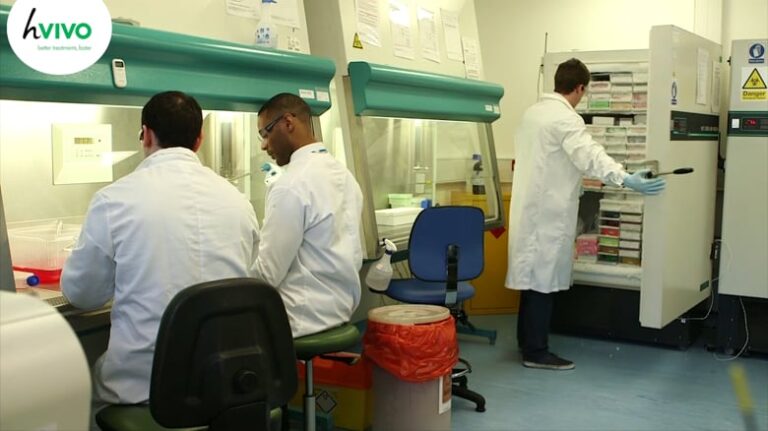Open Orphan plc (LON:ORPH), the rapidly growing specialist CRO pharmaceutical services company which has a focus on orphan drugs and is a world leader in the provision of virology and vaccine challenge study services, today announced publication of positive results of a Phase IIb challenge study of FLU-v 004 (Study 004, NCT03180801) in npj Vaccines. The headline results from this study were previously announced by hVIVO on 10 January 2019. FLU-v is being developed by Imutex Limited, hVIVO’s 49% joint venture with PepTcell Limited, trading as the SEEK Group (“SEEK”).
The primary endpoint was achieved in the Phase IIb challenge study conducted by hVIVO using the National Institute of Allergy and Infectious Diseases (NIAID) Flu virus strain, methodology and analysis as a result of a collaboration between SEEK and the NIAID. The randomised, double-blind, placebo-controlled, single-centre, phase IIb efficacy and safety trial was designed and led by Matthew J. Memoli, M.D., NIAID. It was conducted in 153 healthy individuals between 18-55 years of age. They were randomised to receive one or two doses of adjuvanted FLU-v or adjuvanted placebo subcutaneously on days -43 and -22, prior to intranasal challenge on day 0 with the A/California/04/2009/H1N1 human influenza A challenge virus. The challenge virus strain was developed, tested and supplied by Dr. Memoli and co-workers from NIAID’s Laboratory of Infectious Diseases. The primary objective of the study was to identify a reduction in mild to moderate influenza disease (MMID) defined as having an influenza-like symptom with a confirmed influenza virus. Single dose adjuvanted FLU-v recipients (n=40) were significantly less likely to develop MMID after challenge vs placebo (n=42) (32.5% vs 54.8% p=0.035). The authors concluded that FLU-v should continue to be evaluated and cellular immunity explored further as a possible important correlate of protection against influenza. Additional endpoints were also achieved, including a statistically significant reduction in the number of volunteers who experienced two or more symptoms. Also, FLU-v performed better than placebo, although not to statistical significance, in a number of other key endpoints such as median duration of symptoms and severity of disease as measured by an NIAID-developed FLU-PRO questionnaire, as well as reduction in the mean total number of symptoms and mean peak symptoms, and total viral shedding.
Trevor Phillips, CEO of Open Orphan, said:
“Publication of these positive results for the second FLU-v Phase IIb study (FLU-v004; challenge study) follow on from the publication earlier this week of the FLU-v 003; field study, results.
The results demonstrate that T-cell immunity against conserved regions of the influenza virus is an important component for “universal*” vaccine strategies. Progression to larger Phase III studies with FLU-v can further describe the cellular immune response and evaluate how the vaccine interacts with influenza disease.
The efficacy of FLU-v in this wild-type human influenza challenge study (FLU-v 004) along with the supporting data from previous trials in the field, should be further examined in larger field trials where efficacy of FLU-v can be evaluated against a broader set of influenza strains and wider spectrum of disease. Along with our partner SEEK we have confidence in the potential of FLU-v as a universal flu vaccine and we are in the process of requesting meetings to continue discussions with the key regulatory authorities on the pathway for completing development of this exciting product opportunity.”
Cathal Friel, Executive Chairman of Open Orphan, said:
“The need for better, more broadly protective vaccines against influenza is a high priority worldwide, and few new vaccines have demonstrated efficacy in humans as seen in the results of the challenge study for FLU-v 004. This is the first universal influenza vaccine that has shown this protection from influenza and reduction of symptoms in late-stage studies and together with the highly statistical immune results reported in a peer review article earlier this week means that the risk of failure in a Phase III setting is greatly reduced compared with entering into Phase III studies with no efficacy data.
As previously stated, the additional investment or cost associated with commercialising FLU-v, will come from out-licencing the final stages of development including Phase III, to potential major international pharmaceutical companies, in Europe, North America and China. We remain excited about the potential for FLU-v and in a time when vaccine development is such a key focus globally.”
- A universal flu vaccine is one that is effective against all strains of the virus and does not require changing from year to year
Abstract: https://www.nature.com – DOI: 10.1038/s41541-020-0174-9. Efficacy of FLU-v, a Broad-Spectrum Influenza Vaccine, in a Randomized Phase IIb Human Influenza Challenge Study
Abstract:
FLU-v, developed by PepTcell (SEEK) is a novel peptide vaccine aiming to provide a broadly protective cellular immune response against influenza A and B.
Primary objective: To identify a reduction in mild to moderate influenza disease (MMID) defined as the presence of viral shedding and clinical influenza symptoms.
Design: Randomized, double-blind, placebo-controlled, single-center, phase IIb efficacy and safety trial. (ClinicalTrials.gov:NCT03180801, EudraCT: 2016-002134-74)
Setting: hVIVO Services Ltd (London, UK)
Participants: 153 healthy individuals 18-55 years.
Intervention: One or two doses of adjuvanted FLU-v or adjuvanted placebo subcutaneously on days-43 and-22, prior to intranasal challenge on day 0 with the A/California/04/2009/H1N1 human influenza A challenge virus.
Results: Single dose adjuvanted FLU-v recipients (n=40) were significantly less likely to develop MMID after challenge vs placebo (n=42) (32.5% vs 54.8% p=0.035).
Primary Funding Source: This research was funded in part by the Intramural Research Program of the NIH, NIAID as well as a CRADA with SEEK
Registration: NCT03180801, EudraCT: 2016-002134-74








































